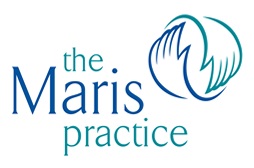It is common for our New Year resolutions to have been dropped by now. As you kick back into your normal routine (work, family, day-to-day chores), habits resurface and the time and energy we need to focus on making the changes we desire are swallowed by the everyday.
Here are some suggestions on how to make resolutions that align so closely with your core needs that it is easier to motivate yourself to keep engaged with your goals.
Resolutions that are about less rather than more
When crafting New Year’s resolutions, it’s essential to ensure they are not solely centred around wanting more material possessions, adding to your achievements and just generally making life busier or more stressful. Instead, the focus should be on holistic personal growth, well-being, and sustainable positive changes.
The tradition of setting New Year’s resolutions signifies a symbolic fresh start, providing individuals with the motivation to reflect on the past year and envision positive changes for the future. Resolutions often revolve around health and wellness, like adopting healthier habits, exercise routines, or dietary changes. These goals stem from a desire for increased vitality and a more balanced lifestyle, rather than a mere pursuit of ‘more.’
Furthermore, resolutions frequently address aspects of mental and emotional well-being, encompassing goals related to stress management, mindfulness, and personal growth. Individuals may aspire to enhance their relationships, nurture social connections, or improve communication skills, emphasizing the importance of emotional fulfilment rather than material gains.
While some resolutions may involve acquiring more, such as learning new skills or expanding one’s knowledge base, the overarching theme is about self-actualisation and becoming a better version of oneself. This may include educational pursuits, creative endeavours, or career advancement, all driven by an innate desire for personal fulfilment and accomplishment.
Here are some considerations to avoid resolutions that are narrowly fixated on acquiring more:
Reflect on Intrinsic Values:
Rather than setting goals solely based on external markers of success, take time to reflect on your intrinsic values. Consider resolutions that align with your personal beliefs, passions, and what genuinely brings you joy and fulfilment.
Prioritise Well-Being:
Centre resolutions around physical, mental, and emotional well-being. This might involve adopting healthier habits, cultivating mindfulness, or focusing on stress reduction. Prioritising well-being ensures that your goals contribute to a more balanced and fulfilling life.
Emphasise Personal Development:
Shift the focus from accumulating possessions to personal development. Choose resolutions that encourage learning, skill development, or pursuing creative endeavours. This not only adds depth to your life but also fosters a sense of achievement and self-improvement.
Cultivate Meaningful Connections:
Instead of aspiring to acquire more social status or superficial relationships, focus on cultivating meaningful connections. Resolution goals could include improving communication, strengthening existing relationships, or actively participating in community or social activities.
Set Realistic and Sustainable Goals:
Avoid setting resolutions that are unrealistic or unsustainable. Unrealistic goals can lead to frustration and disappointment. Break down larger objectives into smaller, manageable steps, making it easier to track progress and stay motivated throughout the year.
Practice Gratitude:
Incorporate gratitude into your resolutions. Acknowledge and appreciate what you already have in your life. Gratitude fosters a positive mindset and can shift the focus from wanting more to appreciating the abundance that already exists.
Focus on Inner Fulfilment:
Ultimately, resolutions should contribute to inner fulfilment rather than external validation. Consider how your goals align with your sense of purpose, passion, and overall life satisfaction.

